Wildebeest Migration / Wildebeest Crossings / Herdtracker
Wildlife / Safaris / Holidays
Home » Best Time For Wildebeest Migration
If you would love to witness the great wildebeest migration, you must ask yourself, when is the best time for wildebeest migration? Well, to start with, the wildebeest migration in Kenya and Tanzania is a yearly event, hence a simple answer is you will see the migration any time of the year. But during the migration, different activities, and events happen during their long migration from Serengeti South to Serengeti North and finally to Masai Mara Kenya.
The best time to see the wildebeest migration depends entirely on what you would want to witness. Most people love the famous wildebeest crossings in Serengeti North and Masai Mara, and some love the wildebeest calving in Ndutu and Serengeti South.
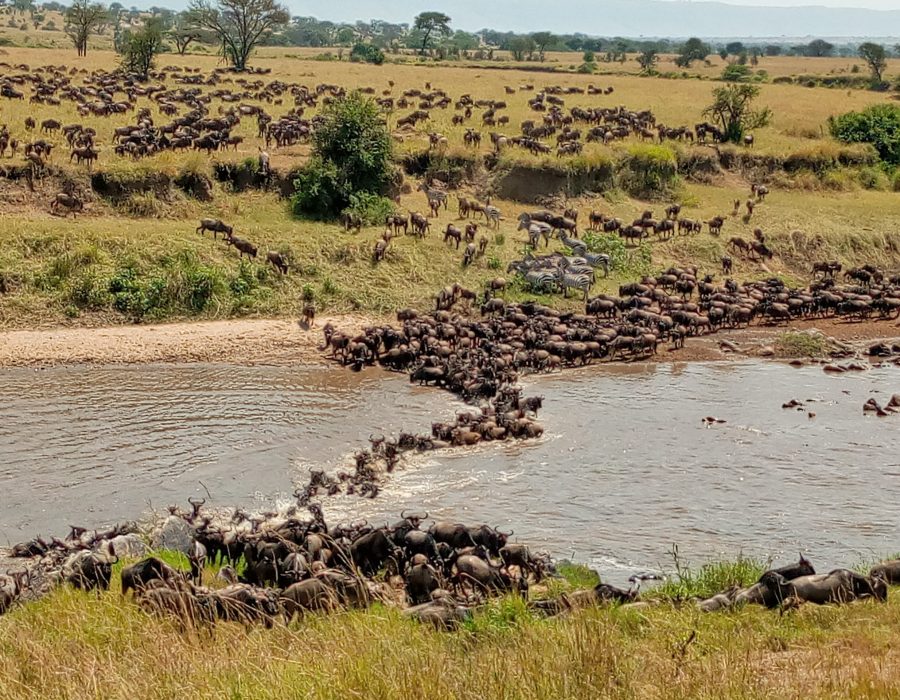

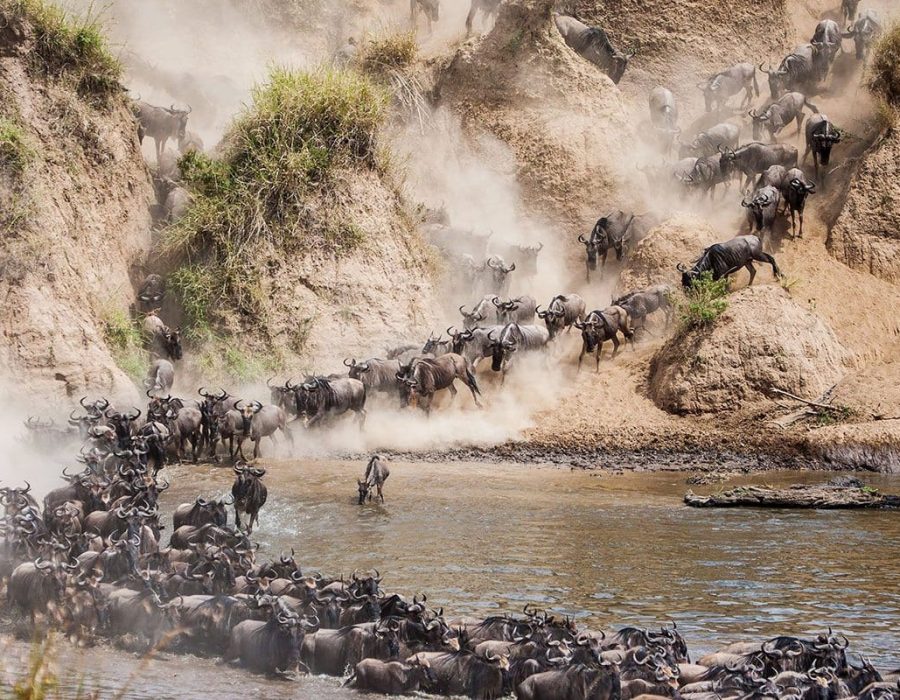
We will guide you below to understand the best time for the wildebeest migration in Kenya and Tanzania. Using our Wildebeest Migration Map, below is a Month-to-month Wildebeest Guide that shows the wildebeest movement between seasons and months. We have another guide that shows a month-to-month guide for wildebeest migration, from January to December, explaining their activities and movements, and where to see them in different months.
We will guide you below to understand the best time for the wildebeest migration in Kenya and Tanzania. Using our Wildebeest Migration Map, below is a Month-to-month Wildebeest Guide that shows the wildebeest movement between seasons and months. We have another guide that shows a month-to-month guide for wildebeest migration, from January to December, explaining their activities and movements, and where to see them in different months.
The best time for the wildebeest migration calving season is between January to March. The wildebeest calving happens in the Ndutu Conservation Area and south of the Serengeti. After an episode of wildebeest extravaganza in Northern Serengeti and Maasai Mara, they come to Ndutu expectant and ready to give birth.
From January to March, more than 500,000 wildebeest calves are born, making it almost 8000+ wildebeest calves born daily. If you are looking to have an adventure of wildlife activities and big cats hunting, visit between January to March and get immersed deeply.
These months are hot and dry, but full of food and water and a conducive environment for wildebeest calving. The short rains from November to December bring much-needed food and water, as well as the long rains that start in mid-February and March provide much-needed food and water as well.
North Serengeti
Serengeti National Park
Serengeti South
Maswa Kimali Game Reserve, bordering the southern Serengeti National Park
Southwestern Serengeti National Park
Serengeti National Park
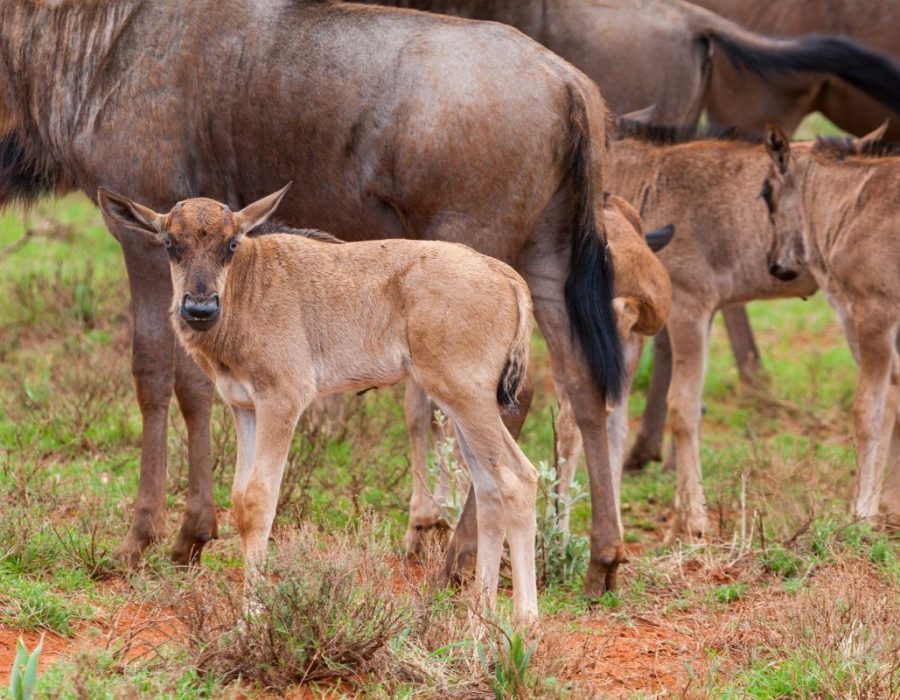
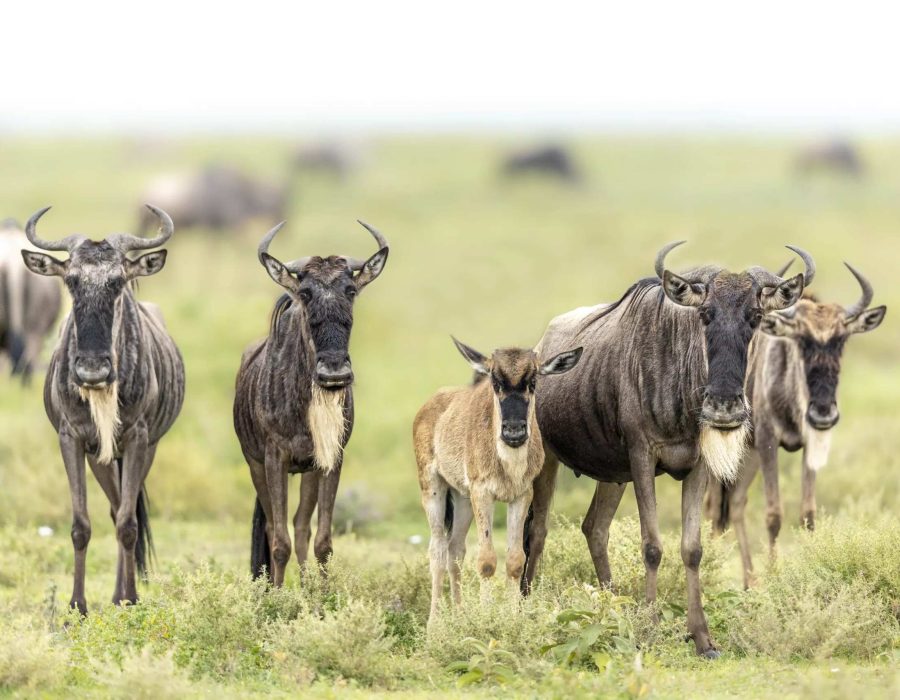
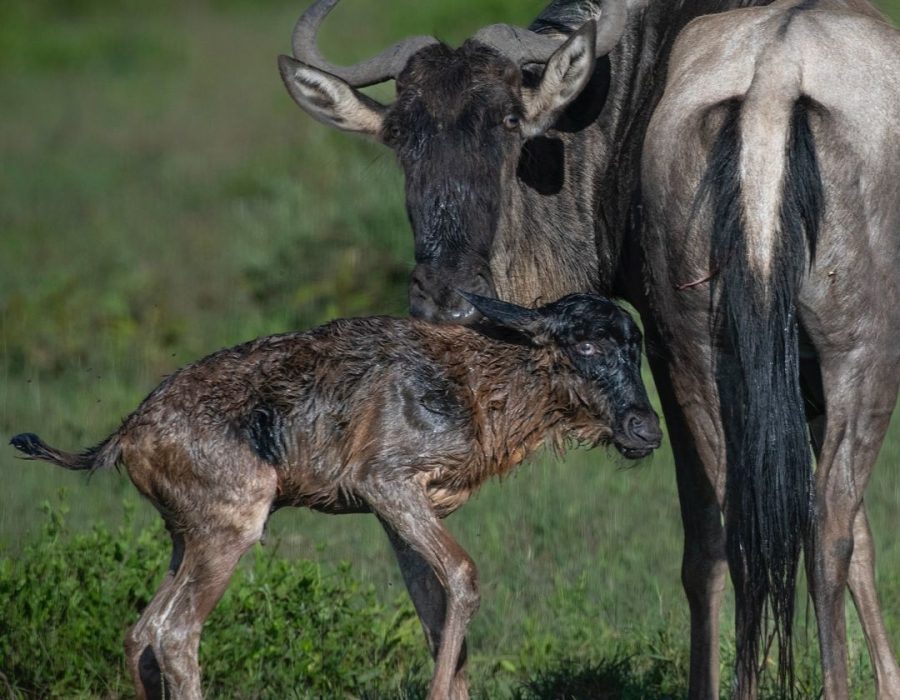
During April to June, the months are wet and nothing much goes on per se, but just the grand mass movements of the wildebeests from Serengeti South and Ndutu to Central Serengeti. The movement comprises of different herds moving in different directions.
Once they arrive in Central Serengeti, they tend to disperse and feed on the long grassland vegetation across the eastern and central areas of Serengeti. This is the best time for wildebeest migration in central Serengeti between April to June.
If you book our wildebeest safari packages in between these months, you are guaranteed to enjoy lots of sightings of wildebeests and zebras, moving around safari camps and lodges, and grazing over the grass covering these areas in Seronera, Moru Hills, and Rongai Regions of Serengeti.
Serengeti National Park
Serengeti National Park
Serengeti National Park
Serengeti National Park
Serengeti National Park
Central Serengeti

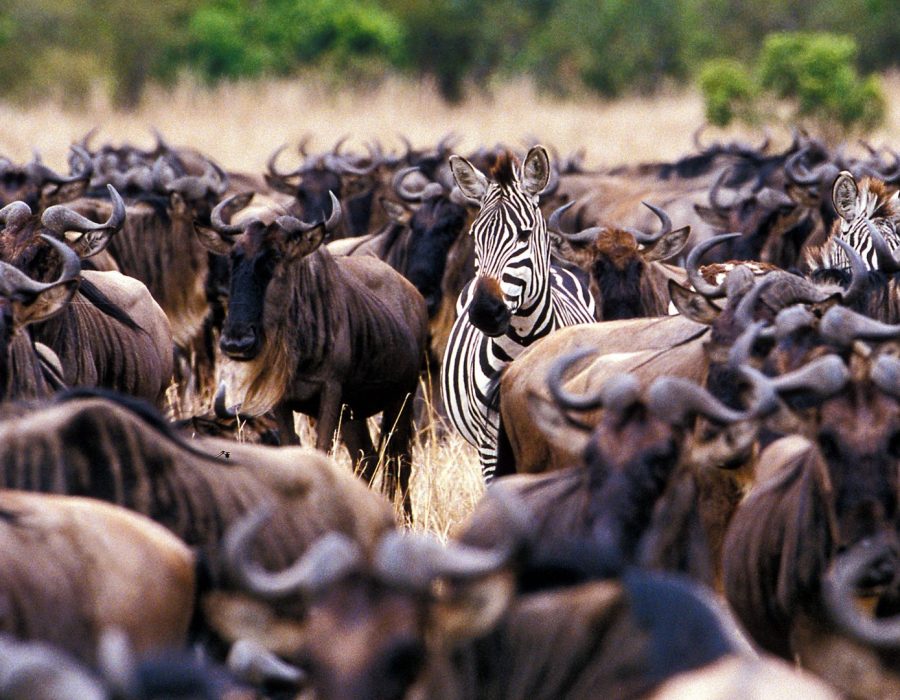
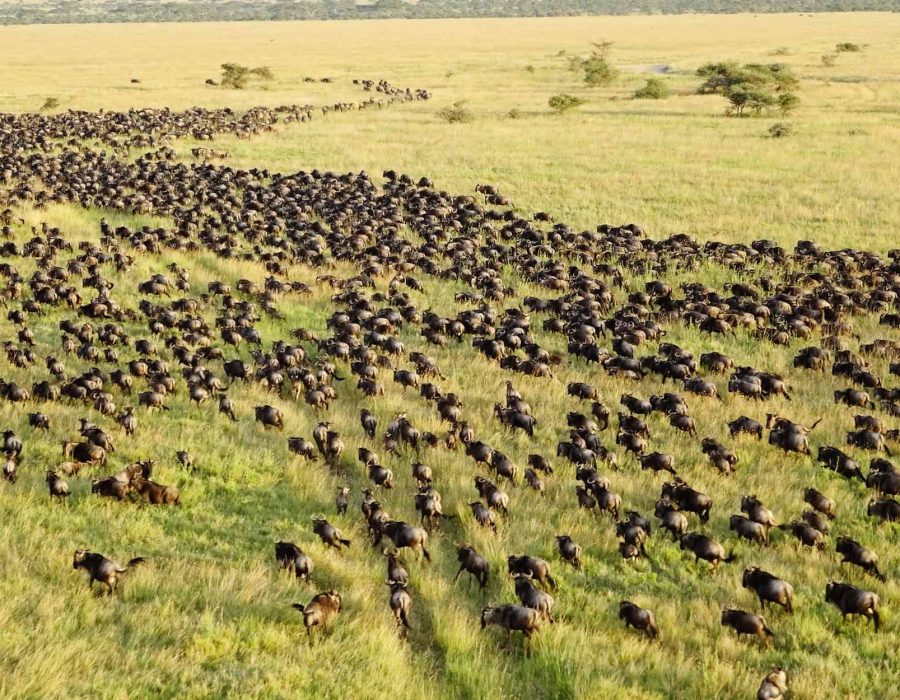
During April to June, the months are wet and nothing much goes on per se, but just the grand mass movements of the wildebeests from Serengeti South and Ndutu to Central Serengeti. The movement comprises of different herds moving in different directions.
Once they arrive in Central Serengeti, they tend to disperse and feed on the long grassland vegetation across the eastern and central areas of Serengeti. This is the best time for wildebeest migration in central Serengeti between April to June.
If you book our wildebeest safari packages in between these months, you are guaranteed to enjoy lots of sightings of wildebeests and zebras, moving around safari camps and lodges, and grazing over the grass covering these areas in Seronera, Moru Hills, and Rongai Regions of Serengeti.
Serengeti North
Grumeti Reserve, Northern Serengeti
Serengeti National Park
North Serengeti
Serengeti National Park
Grumeti Reserve
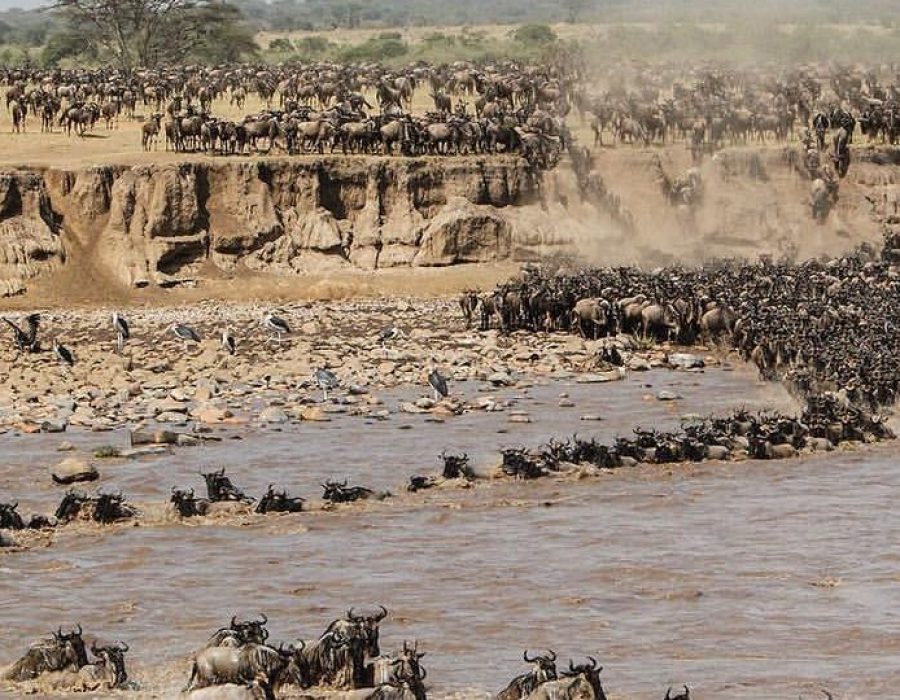
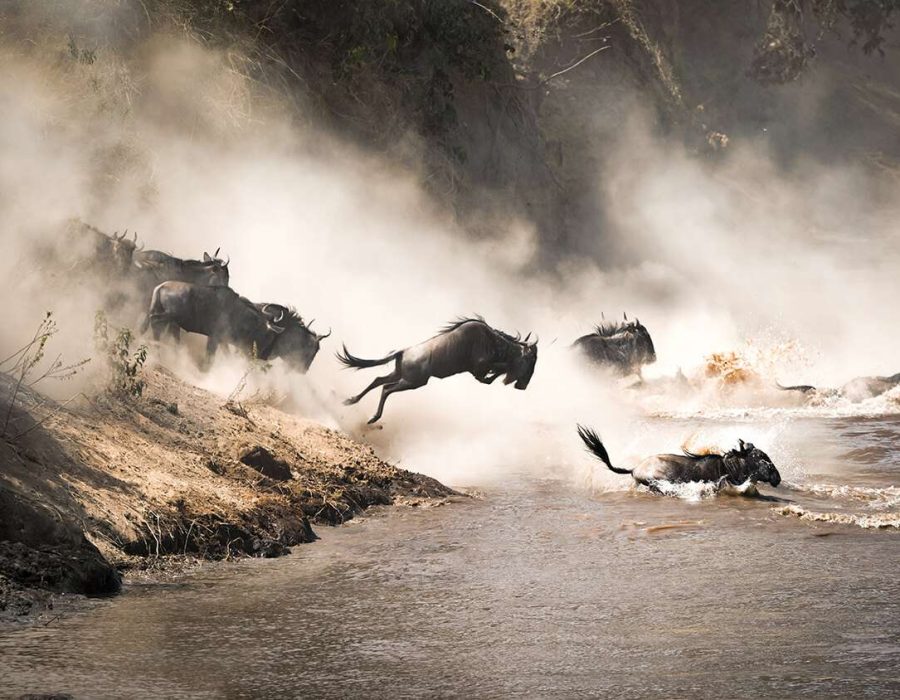
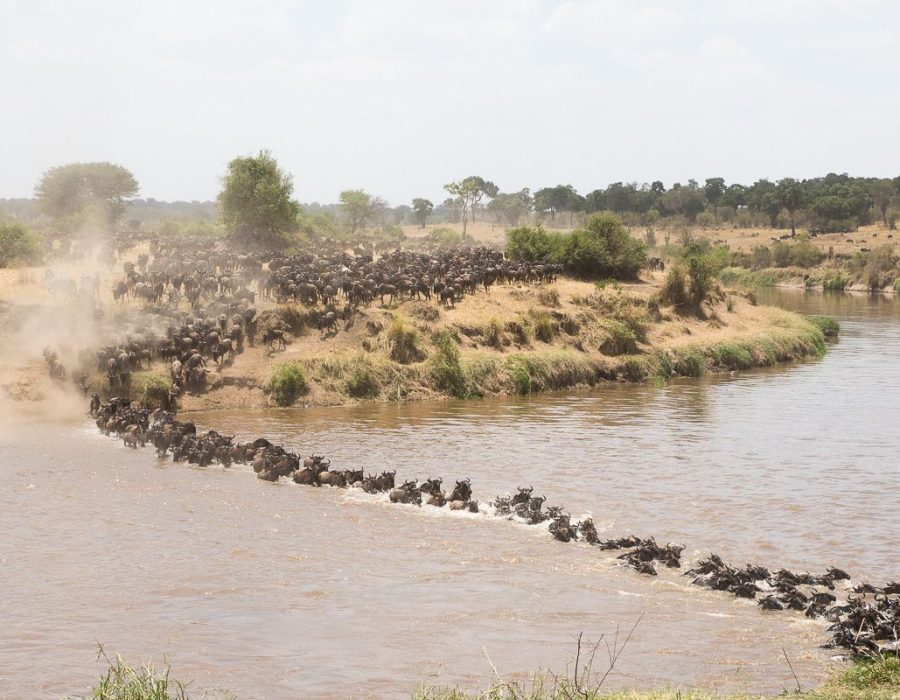
This is the time the wildebeests start their journey back south, after an eventful and thrilling time. Between November and December, the wildebeests are heavily pregnant, and they will be arriving in Ndutu ready for the calving season.
The short rains start in November and extend to December, preparing the grounds in Ndutu and South Serengeti with greener grounds and water. The wildebeest migration moves so fast during these months, ready to get to the south.
Serengeti National Park
Central Serengeti, North Serengeti
Serengeti North
Grumeti Reserve, Northern Serengeti
Central Serengeti
Serengeti National Park



The Wildebeest Migration Map shows the yearly and monthly movement of the wildebeests. As they migrate from the South after birth to the North of the Serengeti and finally into the Masai Mara in Kenya.
The Monthly guide on the map shows various locations you would probably sight in the different months of the year.
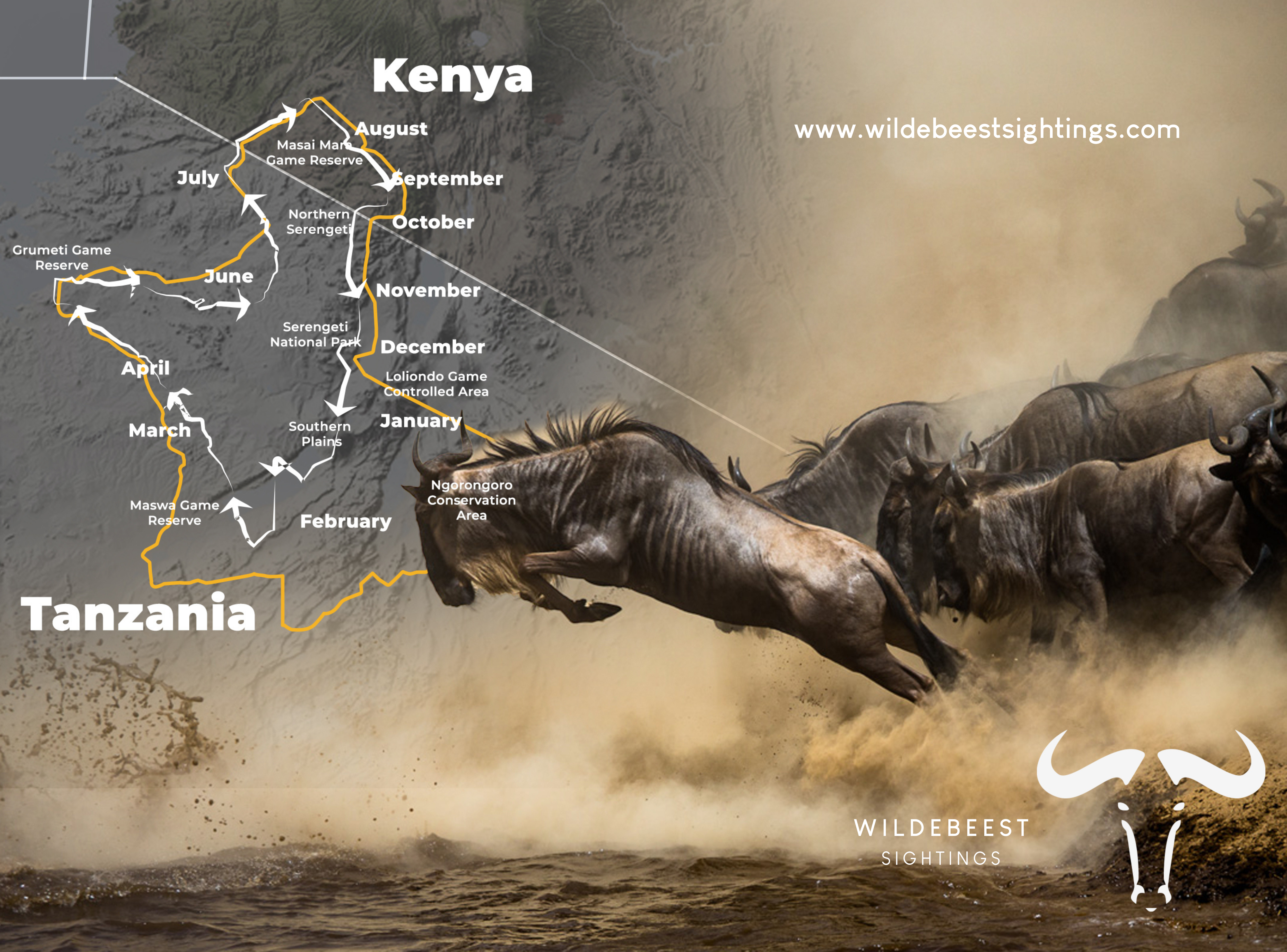
Stay up to date with our Wildebeest Migration Updates each year from January to December.
Explore the nearest safari camps and lodges where the wildebeest migrations were seen and spotted. We recommend these wildebeest migration camps and lodges.
The Great Migration continues in the Southern Serengeti as large herds of wildebeest and zebras move steadily south following recent rains....
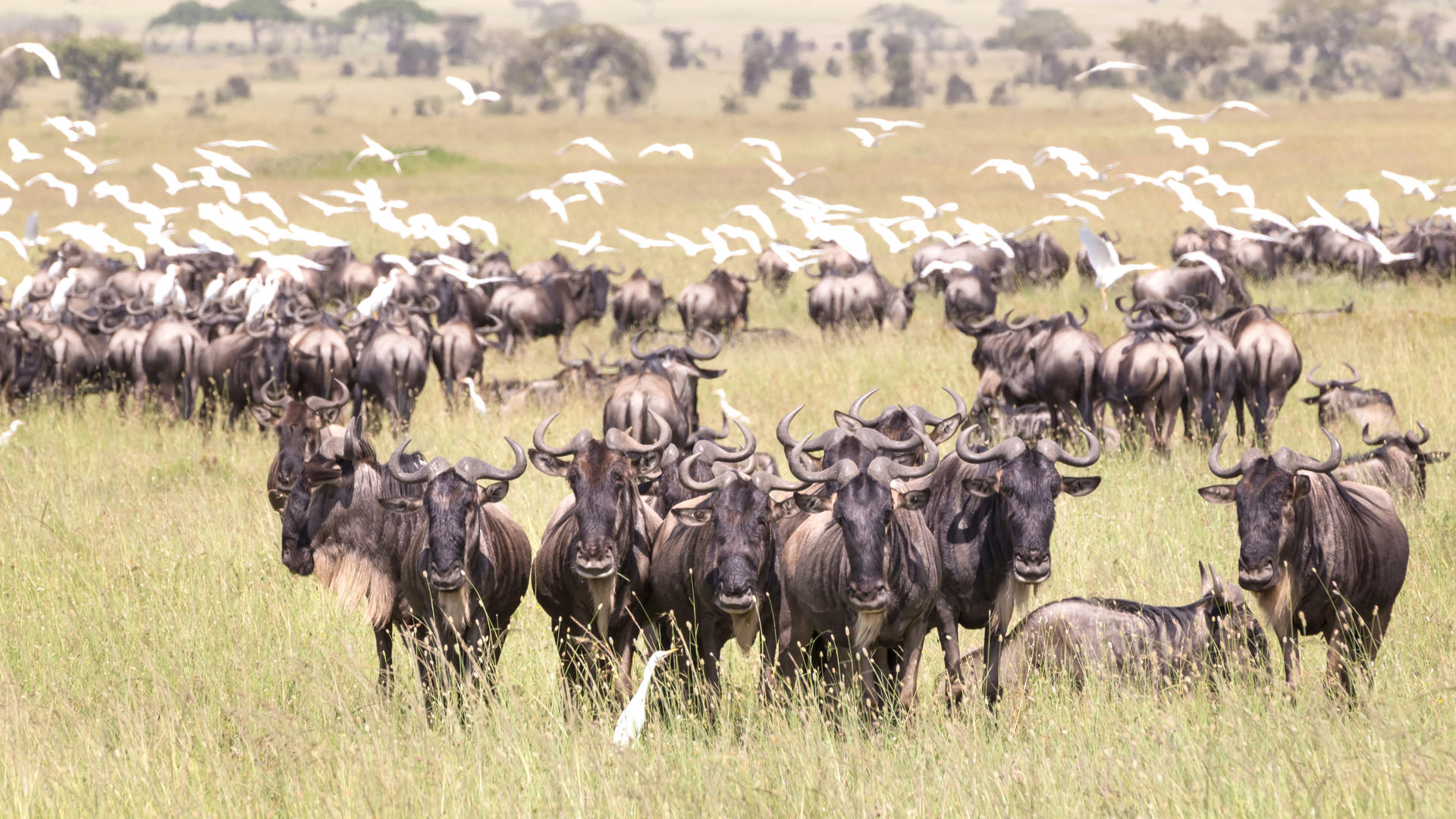
Wildebeest herds continue their steady movement south through the Serengeti, with large groups now seen heading toward the Seronera region. More...
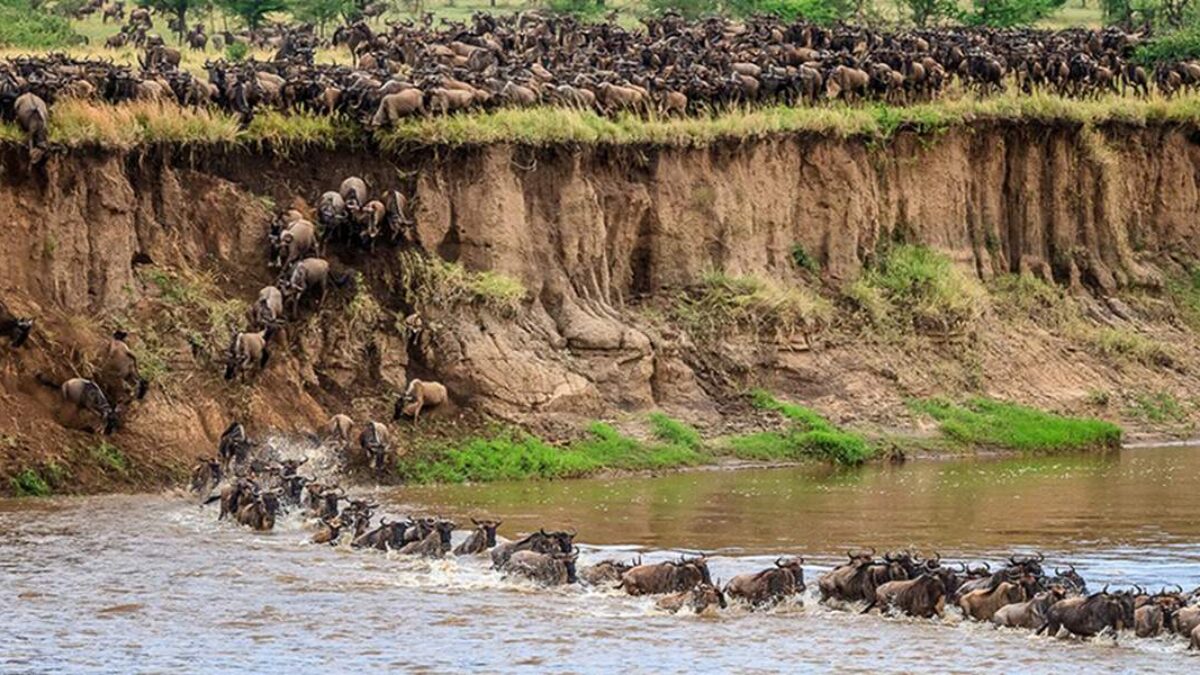
Following widespread rains across the Serengeti, stretching all the way down to Naabi Hill, the migration has begun to shift direction....
We have had so many people miss availability for their migration safaris in 2025. Contact us now to secure your spot for this amazing spectacle in 2026.
Get notified about new wildebeest sightings